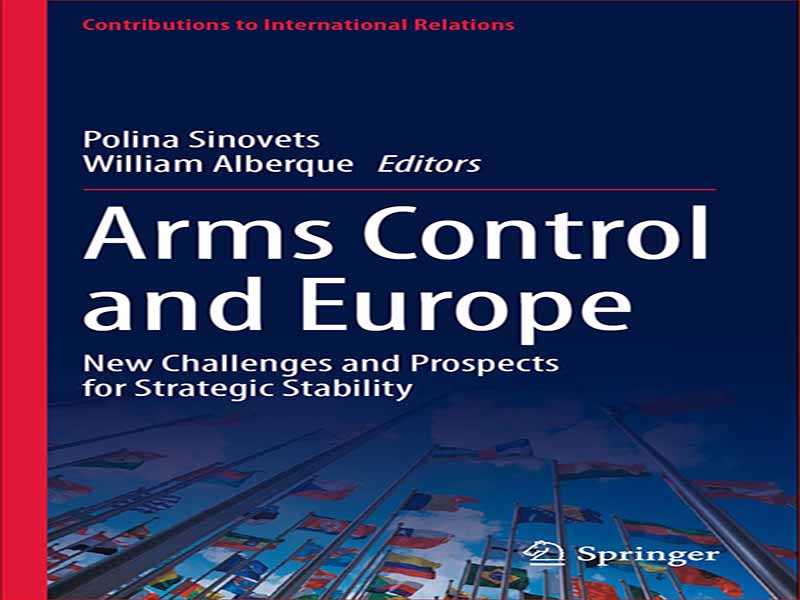- عنوان: Arms Control and Europe/ New Challenges and Prospects for Strategic Stability
- نویسنده: Polina Sinovets, William Alberque
- حوزه: نظامی, تسلیحات نظامی
- سال انتشار: 2022
- تعداد صفحه: 175
- زبان اصلی: انگلیسی
- نوع فایل: pdf
- حجم فایل: 2.50 مگابایت
یکی از قابل مشاهده ترین و نگران کننده ترین تمایلات قرن بیست و یکم، آشکار شدن اجماع پس از جنگ سرد در مورد نقش کنترل تسلیحات در تقویت امنیت بین المللی است. ما شاهد این امر در زمان واقعی هستیم، زیرا نیروهای روسیه در حال محاصره کیف به عنوان بخشی از جنگ ویرانگر آن علیه نظم بین المللی هستند. چارچوب معاهدات و توافقات ایجاد شده در نیمه دوم جنگ سرد، و با توافقات بیشتر تا پایان اولین دهه پس از جنگ سرد تقویت شد، چارچوبی را برای روابط بینالمللی میان همه قدرتهای بزرگ و کوچک در اروپا فراهم کرد. منطقه اقیانوس اطلس و از شروع جنگ جهانی سوم جلوگیری کرد. تبعیت و نقض گزینشی روسیه با معماری کنترل تسلیحات متعارف در اروپا، از جمله معاهده CFE، سند وین، و معاهده آسمان های باز، در طول دهه های 1990 و 2000 باید زنگ خطری برای کشورهای اروپایی باشد که نگران حفظ این موضوع هستند. سیستم امنیتی موجود اینطور نبود. در عوض، آنچه ما سالها در سراسر محیط استراتژیک یورو-آتلانتیک تجربه کردهایم، نشاندهنده فقدان پیشبینی سیاسی، بهویژه در بخشی از دموکراسیهای لیبرال در اروپا، از رویکرد روسیه به کنترل تسلیحات و سیاست امنیتی است. از این نظر، امروز به راحتی می توان گفت که محیط استراتژیک ما پیوسته فرسوده شده است، گویی به جای بولدوزر، بیل پلاستیکی اسباب بازی را برای تقویت نظام بین الملل به اهتزاز در می آوردند، به جای جستجوی دفاع، بازدارندگی و ابتکارات دیپلماتیک جسورانه. .
One of the most observable and worrisome tendencies of the twenty-first century has been the unraveling of the post-Cold War consensus on the role of arms control in bolstering international security. We are witnessing this in real time, as Russian forces are encircling Kyiv as part of its devastating war on the international order. The framework of treaties and agreements created towards the latter half of the Cold War, and reinforced with further agreements up to the end of that first post-Cold War decade, provided a framework for international relations among all powers great and small in the Euro-Atlantic region and prevented the onset of a third world war. Russia’s selective compliance with and violations of the conventional arms control architecture in Europe, including the CFE Treaty, the Vienna Document, and the Open Skies Treaty, throughout the 1990s and 2000s should have been a wake-up call to European states concerned about the preservation of the existing security system. This was not the case. Instead, what we have experienced for years across the Euro-Atlantic strategic environment reflects a general lack of political anticipation, particularly on the part of liberal democracies in Europe, of Russia’s approach to arms control and security policy. In this respect, it is easy to say today that our strategic environment has been steadily eroded, as if one was brandishing a toy plastic shovel instead of a bulldozer to shore up the international system, instead of seeking bold defense, deterrence, and diplomatic initiatives.
این کتاب را میتوانید بصورت رایگان از لینک زیر دانلود نمایید.
Download: Arms Control and Europe




































نظرات کاربران